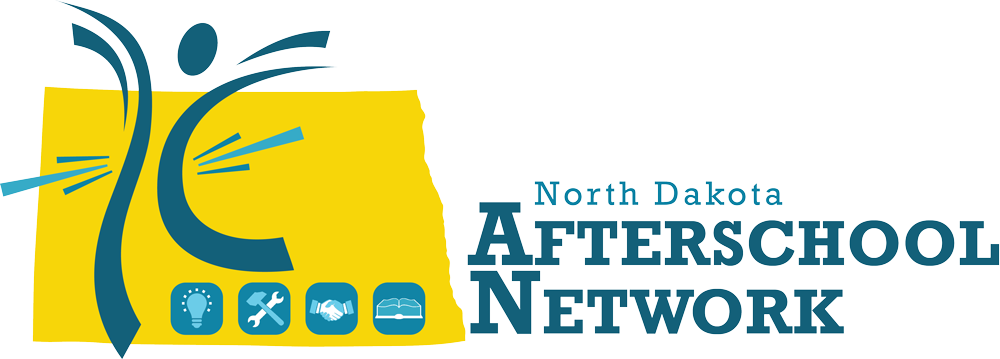
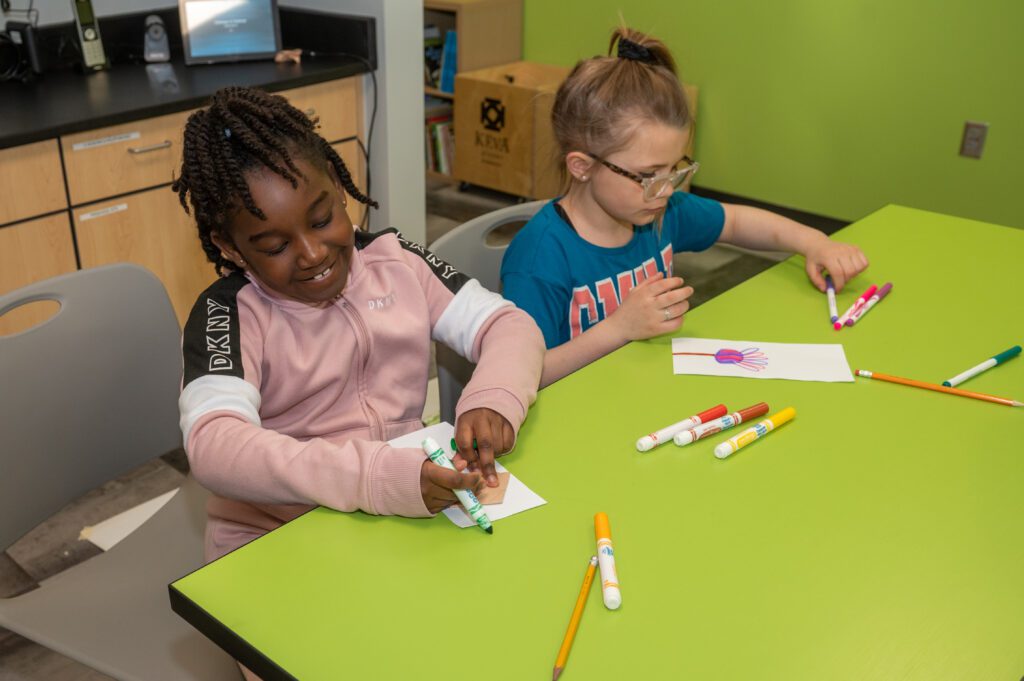
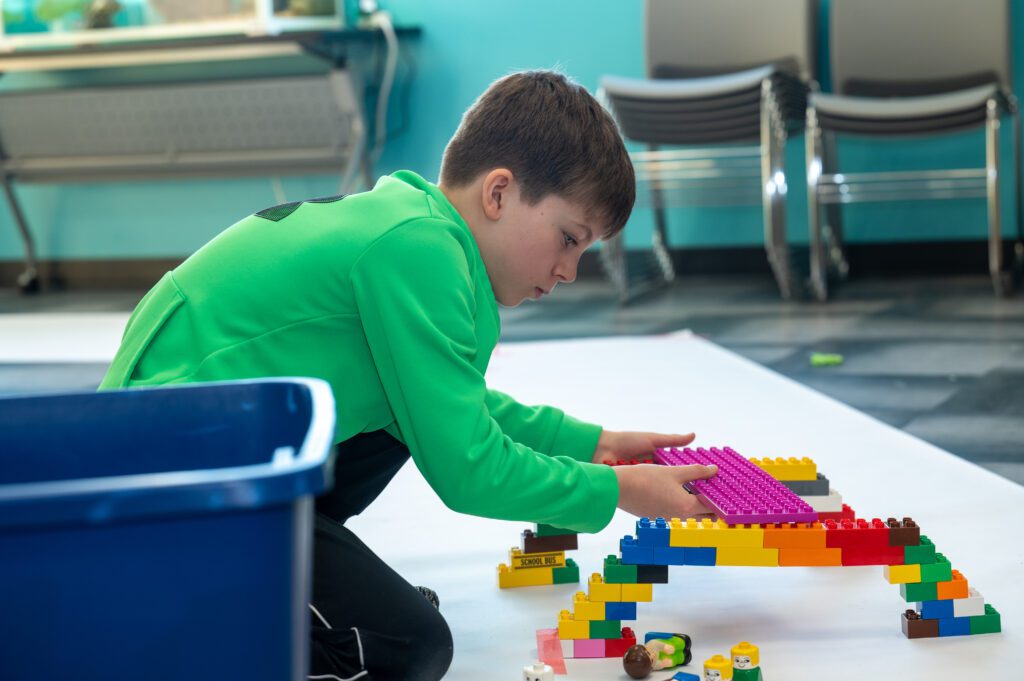
North Dakota’s Gateway to Science (NDGTS) cultivates curiosity in communities across the state. Their mission is to inspire the discovery of science through hands-on experiences, an engaging strategy to enhance learning outside of school-time.
NDGTS was founded in 1994 by local chemist Frank Koch. He saw a need to prepare more North Dakota students for in-demand careers in Science, Technology, Engineering, and Math (STEM). The introduction of NDGTS to the Bismarck community exposed students to ideas and careers they otherwise might not have learned about. NDGTS’s iron-clad commitment to student voice has remained constant throughout its 31-year residency.
Youth-centered program design is a key component of an effective afterschool program as detailed in the ND Quality Standards for Out-of-School Time Programs. NDGTS relies on feedback to adapt to the needs and interests of North Dakotans. Hope Burdolski, Outreach and Education Director, and Alisha Kelim, Onsite Education Director of NDGTS, provided an example of the impact of student feedback on programming: the launch of a middle school coding club. An elementary coding club had already been established in the community, but students found that there were few options to build on that knowledge as they moved to middle school. NDGTS recognized this gap and built a curriculum to teach more advanced coding topics like game building. Students are embracing these opportunities; one student has even learned how to code their own game using the software Python.
NDGTS collects student feedback informally and through formal surveys. Burdolski says that STEM educators routinely ask students to talk about their favorite thing they learned to encourage reflection and gain further insights for future programming. NDGTS doesn’t only use feedback to improve their programs; the exhibits in the permanent space were influenced by the community. The exhibits cover a whole gamut of interests from topics like the soils of North Dakota to rocketry to the human body. They are currently in the process of creating an Outdoor Explorium to further connect outdoor learning to topics important in the community. Once again, local opinions were considered in its inception. Kelim and Burdolski explained that they consulted with local community gardeners and are incorporating a pollinator garden based on their input.
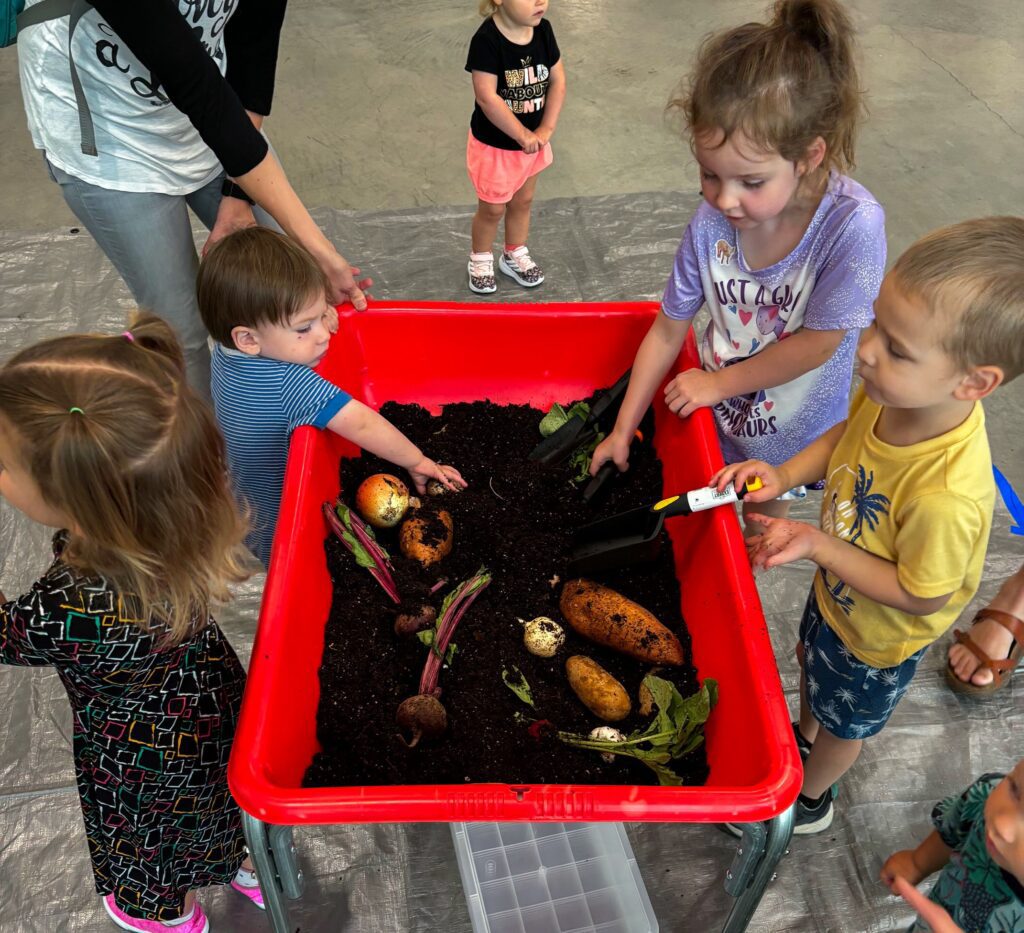
NDGTS may have a static space, but the organization itself is not static. As their mission is to inspire the inner scientist in all people, inclusivity practices are ongoing and prioritized. One aspect of inclusivity that NDGTS values is visual representation. “Everyone should be able to see themselves reflected,” Burdolski states. Another project geared towards building inclusivity is a map of their facility in Bismarck that will be uploaded to their website with sensory information to allow people to plan out their visit prior to arrival. NDGTS also recently hired a STEM educator who is working with local businesses and health organizations to ensure all spaces are accessible.
NDGTS recognizes that smaller, rural communities may not have the same scientific resources as larger cities. To increase inclusivity across urban and rural populations, they began a NDGTS on the Go program to break barriers to expand career exploration. The on-the-go program has two branches of support: STEMZone kits and STEM workshops. In each program, a team member from NDGTS hops in their mobile lab (a colorfully wrapped van) and heads off to a community with resources to share. STEMZone kits are pre-packaged STEM exploration stations. NDGTS has close to 60 kits to choose from ranging in age-level and topic. Schools can choose from learning about magnets with kindergarteners to exploring the forensics of a crime scene in high school. The NDGTS educator helps facilitate the overall event. Each kit comes with pre-packaged instructions; all the school or community needs to provide are volunteers to run the stations and a place to hold it in. Kelim and Burdolski have seen many STEMZone kits successfully used outside of school time. Communities have taken advantage of this offering for STEM Nights, parent-teacher conferences, book fairs, and family engagement events.
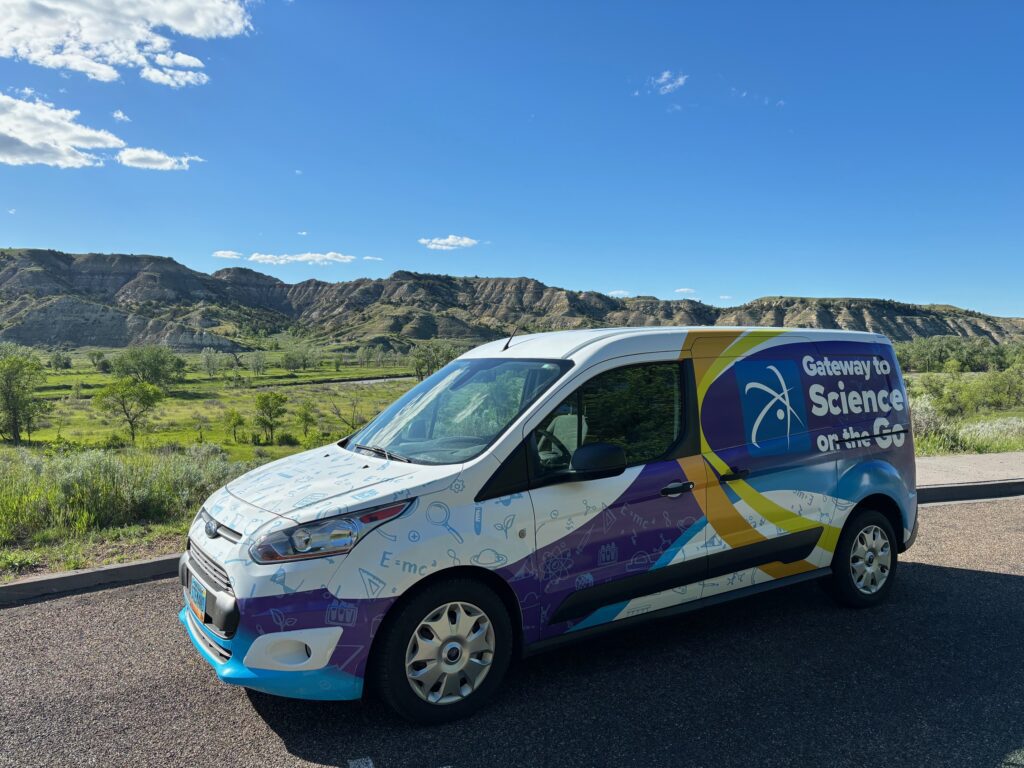
The other branch of the on-the-go program is STEM workshops. Workshops are typically facilitated during the school day. In a NDGTS workshop, a STEM educator visits a class to lead a lesson and activity that can be developed in the classroom such as frog dissection or application of engineering principles to design small-scale bridges. NDGTS has ensured that all their workshops meet ND Science Standards. They also work with community partners to create engaging, hands-on workshops. For example, they have worked with Undeniably Dairy in the past on leading a lesson in digestion. Recently, students have been expressing interest in environmental science and veterinary science, so true to their mission of incorporating student voice, NDGTS is developing new workshops.
Burdolski and Kelim are passionate STEM-advocates and fierce supporters of out-of-school time programming. NDGTS serves afterschool students through camps, clubs, exhibits, and NDGTS on the Go. Kelim and Burdolski find great satisfaction in the relationships that have been sparked and maintained by scientific curiosity, and as small as it may sound, being recognized as the “science ladies” by those who return for programming. North Dakota’s Gateway to Science truly embodies the idea of meeting students where they are – both academically and geographically.


Out of school time programs offer a host of benefits for students and families alike. Students are afforded the opportunities to build social skills while exploring their interests in a safe environment. Parents are also major supporters of afterschool; 89% of North Dakota parents say afterschool programs help them keep their job and 92% say afterschool programs give them peace of mind while they’re at work.
Inspired by NDGTS and want to get involved?
North Dakota’s Gateway to Science is a great place to take students for field trips in your school, afterschool, or summer learning program. If you are located outside of Bismarck or travel is not possible, NDGTS on the Go is another option to engage in programming.
NDGTS on the Go is funded in part by monetary donations and business sponsorships. If you’d like to invite NDGTS to your afterschool or summer learning program, the ND Afterschool Network can provide technical assistance to help secure community or business sponsorships, if needed.
